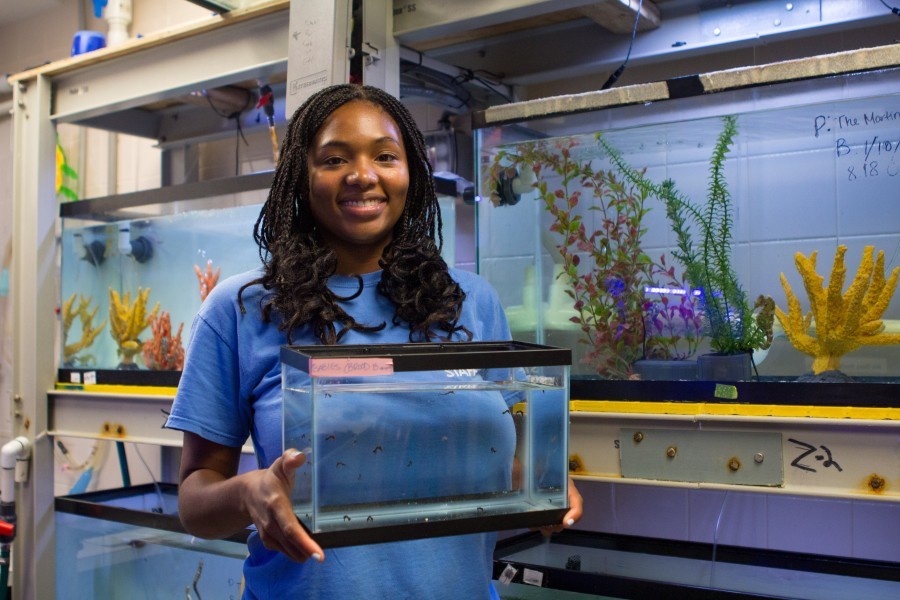Black History Month video chat on Feb. 22: African Americans in Marine Science
Celebrate African Americans' contributions to marine science during a live, online video program presented by Mote Marine Laboratory’s SeaTrek.TV and featuring Mote Aquarium Biologist Amanda Hodo.
This free program, geared toward grade 6 through adult audiences, will take place from 1-2 p.m. Feb. 22. Registration is required. Classrooms and the public can register and view the program at: www.seatrek.tv/live.
Hodo was born and raised on the South Side of Chicago. Throughout high school, she participated in various teen programs with Shedd Aquarium, which sparked her interest in marine life. She earned her bachelor’s degree in Biology from Grinnell College in Iowa. During the summer after graduation, she was an Aquarium Husbandry intern at Mote. That fall, she returned to Chicago and interned in the Fishes Department (Quarantine) at Shedd Aquarium. Later she was hired by Mote for a temporary exhibit, and today she oversees Mote’s Seahorse Conservation Laboratory.
During the Feb. 22, Hodo will join SeaTrek’s Kasey Gaylord-Opalewski to discuss African American marine scientists such as Ernest Everett Just (1883-1941), who advanced the study marine animal embryonic development, focusing on invertebrates such as sea urchins.
“There are a number of influential African American marine scientists, and we want to tell their stories and share what they contributed,” Hodo said. “To talk about what we’re doing here at Mote, I’m going to provide an overview of our Seahorse Conservation Lab.”
To experience this 50-minute program, individuals or classrooms should have a computer or videoconference system running Zoom.
Mote recommends that participating classrooms use a large, bright TV screen over a projector if possible, a webcam or video camcorder (most laptops have a built in webcam), and a USB speaker and microphone. High-speed internet connection with wired Ethernet is preferred.
